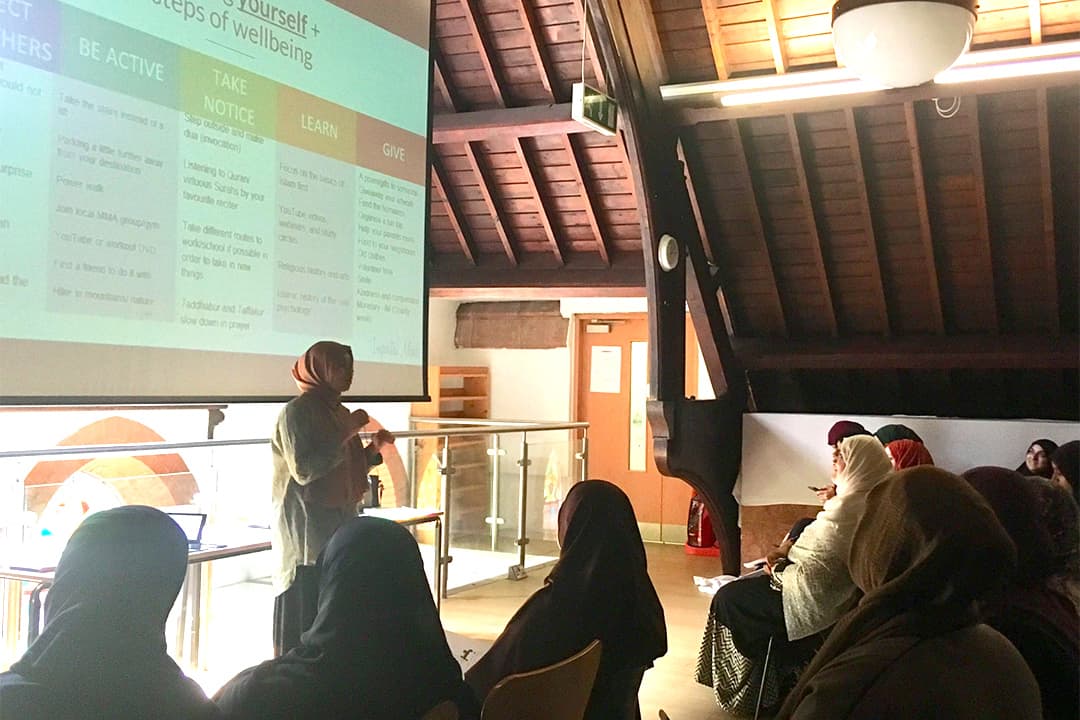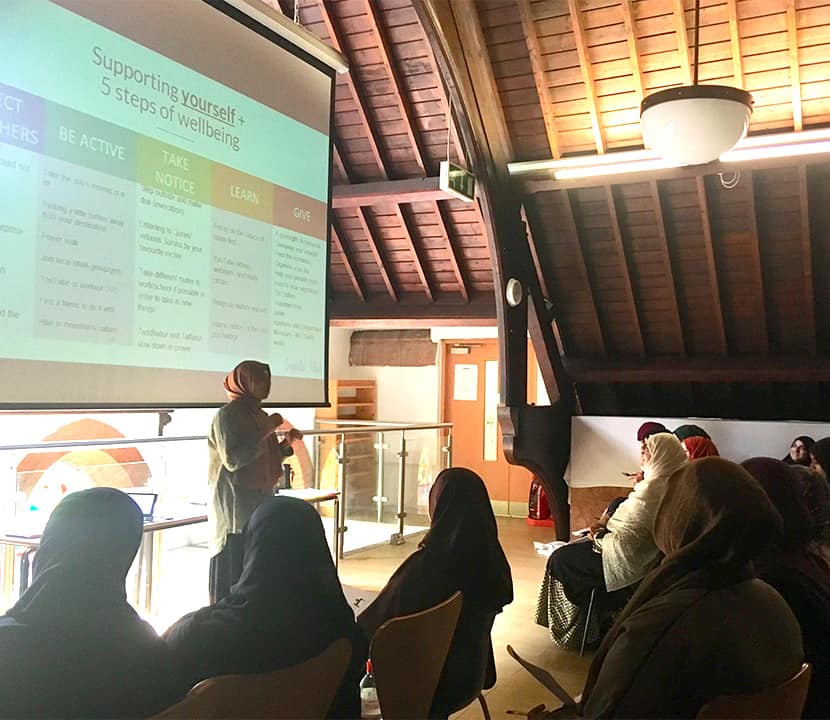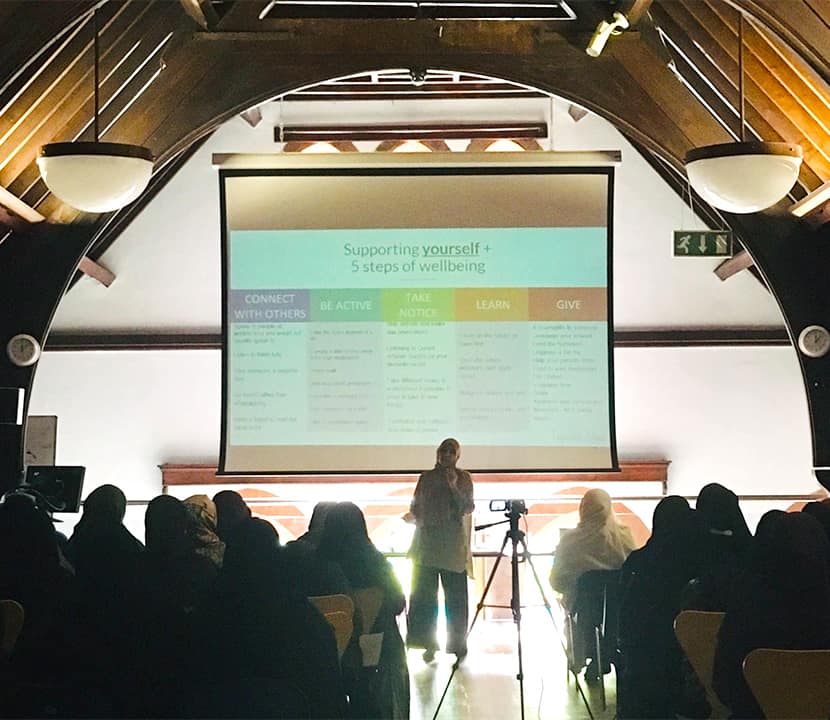On 25th July 2019, Inspirited Minds was invited to Al-Azhar Academy to run a 2-hour mental health training to the primary and secondary school teachers. Although short in time, the training included interactive activities around taking care of oneself using the stress bucket metaphor, problem-solving common scenarios (adapted to the current problems faced by students in the school) and role-playing how to communicate effectively with students.
The attendees gave really positive feedback and they valued the part on teacher’s wellbeing. It became apparent to me that regularly addressing the wellbeing of teachers is paramount and giving them the skills and tools to identify their stress levels and managing this is something that they were going to take back with them. Many teachers were engaged in role play and were keen on finding solutions for their students’ issues. Towards the end of the training, I felt that the teachers understood the importance of validating the young person’s feelings and difficulties first before providing options for solutions.
Some attendees approached me afterwards asking for advice about supporting their own children. I signposted them to the Inspirited Minds support services and explained that the support team would be able to help with answering specific questions and if they want to be anonymous, then they can also post their questions onto the Ask IM section of the Inspirited Minds website which will be answered by our support team.
I pray that Allah grants the teachers in implementing the skills learnt from the training into their day-to-day work, may He make it easier for them to provide comfort to their students as well as take care of themselves. Ameen.
Top tip for teachers working with Muslim young people:
- Have a question box for controversial questions which is located in a place that’s not too visible but where the young people can find.
- Be wary of language and attitude (i.e. if you’re in shock that will have an impact on how the young children respond).
- It’s okay to say “I don’t know and I’ll find out” to a question that is asked by a young person.
- Show empathy – young people ask questions when they feel confused. Your reaction to their question will determine how comfortable they would feel when they have a similar question to ask you next time.
If you would like to get involved in raising awareness about mental health in your local community, we are looking to grow our Outreach Team to different cities around the country. We will ensure that you are fully trained and confident before running workshops and talks. Please visit our vacancies page for more information.





